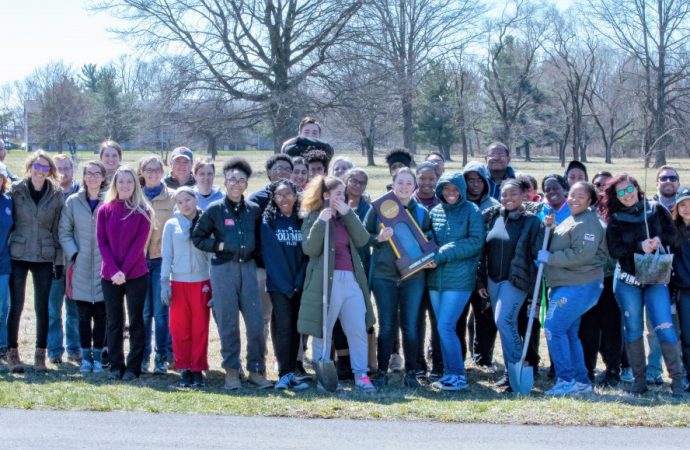The Council duo explain why certification is important if you care about sustainability, and how to achieve it even if your sporting event is small and low on resources
Forget entertaining the crowd and making sure participants are looked after, sporting events need to focus all of their efforts on three major factors:
Reputation. Brand. And societal expectations.
That might be a slight exaggeration. Sport will, first and foremost, always prioritise the entertainment of the spectators and wellbeing of those who play. But looking at the bigger picture – what the sporting event can do to improve wider society – is an increasingly significant consideration for organisers.
Major sporting events, such as the Olympics, can go through certification processes such as ISO 20121 to make sure their operations are as sustainable as possible, with negative impacts minimised and positive ones maximised.
But where do you turn if your event has a fraction of the scope and budget of the Olympics?
Organisers of small and medium sized sporting events are increasingly turning to the Council for Responsible Sport’s Certify programme, which takes them through five pillars, or standards, (from planning and communication, to procurement, resource management, to equity, access and community legacy) to sure up their credentials.
‘Real, authentic, measurable’

Since launching the programme in 2008, the Council for Responsible Sport has certified 150-plus events in eight countries. Kevin Phelan, the organisation’s secretary, thinks that direction of travel will continue with sustainability and responsible practice being expected by the majority, if not all, stakeholders.
“Where sport is evolving to now is down to societal and stakeholder expectations, whether that’s participants, spectators, sponsors and event owners, who are increasingly focused on this holistic view,” he tells The Sustainability Report. “They want it to be real, authentic, measurable. And not made up.”
He adds: “At one end of the spectrum is the really heavy ISO standard which are inaccessible to all but the largest and most well-funded organisations. At the other end you have a combination of a myriad of good work, a disparate set of good goings on and, in some cases, greenwashing. This evolution of the standards was to help bring a structured middle ground between this world of free for all and unattainable standards.”
There are four levels to certification with the Council, which revised the process last in 2014. Events can go for the basic Certified recognition, or achieve Silver, Gold or Evergreen depending on the type of commitment they’ve made.
Events can achieve credits for certification if they can demonstrate work towards certain standards. For example, if an event wants to achieve credits by working on its procurement processes, it will have to write a sustainable procurement policy and provide athletes, volunteers and spectators easy access to food and beverages that are either locally or sustainably grown, among other things.

“It’s really robust and it’s made to prompt organisers into thinking about an event from a big picture level, and then drill down into the detail,” says Shelley Villalobos, managing director for the Council. “There is essentially a menu of credits or best practice opportunities that can earn certification at various levels. The more best practices events seek to implement, the higher level they can attain.”
Challenging suppliers
Procurement, in fact, is highlighted by Phelan as one area an event can make significant positive progress. Challenging suppliers and vendors early on in the process to think more sustainably about the products they’re providing lays down a marker quickly, while event organisers should have a particular focus on resources and waste – two major undertakings that require time to transform.
“This isn’t just about traditional sustainable suppliers,” he says. “I think you can ask any of the suppliers that are part of your ecosystem to do things a different way. Think of the way Walmart works: if Walmart decides it wants 50% less packaging for its eggs, it tells the whole supply chain to come back in six months with the answer. It pushes innovation out to a much wider group rather than trying to think of everything itself.
“I would encourage events to do that and I think Certify provides at least the right questions to get those vendors, suppliers and all other people that make a successful events to think about things in a different way.”

If you’re an sports event organiser, particularly a small one with very little financial or physical resource, this may sound like a lot of hard work for little tangible benefit. But that assumption would be a mistake, says Villalobos.
“The future of a business is dependent on its reputation,” she explains. “86% of people expect companies to do more than just make a profit. 66% will spend more on a product that aligns with their values.”
There is a sense that the interest of spectators, particularly millennials, is beginning to correlate to the philosophy of that sporting event, and what benefits it provides for wider society. And that is mushrooming out to municipalities, who insist on sustainability work being undertaken to host certain events in their locality.
Phelan offered Chicago as an example, with the Illinois city lowering permitting fees for sporting events that follow the Council’s Certify framework.
“Another direct benefit is on the waste side of things,” he adds. “We’ve done a lot of work with Pebble Beach Golf Club and found that we were able to add to the tournament’s bottom line of profitability by taking an aggressive approach to zero waste, because the cost of commercial waste management is very high.
“Nonsense like clear plastic gift bags with paper junk inside also hits the bottom line. We’ve worked with a lot of events to move them towards digital platform, which reduces waste, costs and handling at the event, making a positive impact on their bottom lines.”
Evergreen
Among the sporting events to win Evergreen certification are: NCAA Women’s Final Four Basketball Championship (2018), NCAA Men’s Final Four Basketball Championship (2017), Ironman Boulder (2016-2017), IAAF World Indoor Track & Field Championships (2016) and Bank of America Chicago Marathon (2016-2017).
And Villalobos thinks there are many more to come.
“As the world is increasingly going from a linear to circular model, sport is uniquely positioned to help with that transition,” she says. “It’s the best example of people coming together, collaborating with a purpose. The sport sector can step up as a leader.”
See a full list of standards here.










Leave a Comment
Your email address will not be published. Required fields are marked with *